Sourdough Kush (aka Sour Dough Kush)

Sourdough Kush is an indica-dominant hybrid, meticulously bred from Sour Diesel, Girl Scout Cookies, and OG Kush. It displays robust branching and supports dense, resin-coated flowers with pronounced trichomes and vibrant orange pistils. Ideal growth is achieved in controlled environments, requiring precise topping and low-stress training to enhance yield and bud quality. It has a flowering period of 8-9 weeks. The strain has a THC level around 19%, offering profound relaxation with a mental uplift, primarily driven by a dominance of caryophyllene in its terpene profile. Exploring more will reveal additional nuances of its cultivation and effects.
Key Takeaways
- Sourdough Kush is an indica-dominant hybrid, stemming from Sour Diesel, Girl Scout Cookies, and OG Kush.
- It features high THC levels around 19% and minimal CBD, focusing on psychoactive effects.
- The strain is known for its calming and uplifting effects, suitable for treating anxiety and depression.
- It has a distinct aroma of sweet dough with pine and spice undertones, primarily due to the caryophyllene terpene.
- Optimal growth occurs in controlled environments, with a flowering period of 8-9 weeks.
Genetic Lineage
Derived from a robust genetic lineage, Sourdough Kush combines the distinctive traits of Sour Diesel, Girl Scout Cookies, and OG Kush, establishing it as an indica-dominant hybrid renowned for its potent effects and complex flavor profile. This strain’s heritage brings together the energizing euphoria of Sour Diesel, the full-bodied relaxation of OG Kush, and the sweet, earthy complexity of Girl Scout Cookies. Each parent strain is a titan in the cannabis community, contributing to Sourdough Kush’s high desirability and therapeutic versatility.
In terms of cultivation, Sourdough Kush exhibits a bushy, indica-typical structure with robust branches capable of supporting its dense, resinous flowers. The plant thrives in controlled environments where factors such as light, humidity, and nutrients can be meticulously managed. The flowering period lasts approximately 8-9 weeks, after which the cultivator is rewarded with trichome-rich buds that exude aromas of pine and spicy woods.
This genetic powerhouse offers effects similar to other potent indica-leaning hybrids like Gorilla Glue and Blueberry Kush, which also provide profound relaxation and mental uplift. Therefore, Sourdough Kush is a prime choice for users seeking strains with similar effects, particularly for relief from stress and pain.
THC/CBD Content
The Sourdough Kush strain exhibits a THC concentration of approximately 19%, categorizing it as moderately potent, while its CBD levels remain conspicuously low, emphasizing its THC-driven properties. This cannabinoid profile suggests that Sourdough Kush is primarily cultivated for its psychoactive effects rather than for high-CBD medical applications. The low CBD content indicates a lesser focus on the modulation of THC’s intensity and a reduced capacity for counteracting potential THC-induced anxiety.
In botanical terms, the development of Sourdough Kush’s cannabinoid synthesis is influenced by its genetic lineage and environmental factors during cultivation. The dominance of THC in this strain is likely a result of selective breeding practices aimed at enhancing certain desirable effects such as calmness and a sense of euphoria, which are sought after in recreational and some medical uses. However, medical users seeking relief from conditions that respond well to CBD may find this strain less suitable.
Cultivators and consumers should note that despite its moderate THC level, the absence of significant CBD can influence the overall therapeutic and side effect profile of the Sourdough Kush strain. This includes typical cannabinoid-induced effects like dry mouth and dry eyes, which are more pronounced in THC-dominant strains.
Terpene Profile
While the cannabinoid content of Sourdough Kush is a key aspect of its profile, the terpene composition, particularly the dominance of caryophyllene, also plays a substantial role in defining its characteristics and effects. Caryophyllene, a bicyclic sesquiterpene, is noted for its spicy and peppery aroma, reminiscent of the scents found in cloves, black pepper, and cinnamon. This terpene not only contributes to the strain’s distinctive olfactory signature but enhances its professional appeal within therapeutic contexts.
In terms of health benefits, caryophyllene’s interaction with the endocannabinoid system (ECS) is particularly notable. It binds to CB2 receptors, which are primarily found in peripheral tissues and are involved in modulating inflammation and pain. This mechanism underpins the potential anti-inflammatory and analgesic properties of Sourdough Kush, positioning it as a candidate for relief-related applications in medical cannabis practices.
Moreover, the professional cultivation of Sourdough Kush, with a focus on optimizing its terpene profile, can significantly impact its efficacy in these health-related applications. The botanical expertise required to maintain the integrity of caryophyllene through careful temperature and humidity control during cultivation underscores its importance in the overall composition of this unique strain.
Effects
Sourdough Kush, possessing a THC potency of 19%, delivers both calming and energizing effects that cater to a range of therapeutic applications. This hybrid strain balances the tranquil serenity typical of Indica varieties with the uplifting vigor associated with Sativas. The botanical composition of Sourdough Kush, particularly its dominant terpene caryophyllene, plays a significant role in its dual-action effects. Caryophyllene is known for its stress-relieving properties, which likely contribute to the calming sensations reported by users.
The effects of Sourdough Kush are further characterized by a unique sensory experience. The strain’s flavor profile, marked by ammonia, butter, and nutty tones, complements its psychotropic effects, creating a holistic consumption experience. Users frequently note the onset of a soothing tranquility that aids in alleviating mood disturbances, followed by a gentle stimulation conducive to creative endeavors.
However, potential consumers should be aware of common side effects, such as dry mouth and dry eyes, typical of cannabis use but pronounced in strains with higher THC concentrations like Sourdough Kush. These effects are important considerations for both casual users and cultivators, influencing decisions on cultivation conditions to optimize the strain’s therapeutic potential while mitigating adverse reactions.
Medical Uses
Given its notable THC concentration of 19% and the presence of caryophyllene, Sourdough Kush is extensively utilized for its therapeutic efficacy in treating anxiety, depression, and pain. The strain’s specialized cannabinoid profile, characterized by a significant proportion of tetrahydrocannabinol, targets the endocannabinoid system in a manner that potentially modulates neurotransmitter release, thereby alleviating psychological and physiological discomfort.
The presence of caryophyllene, a terpene known for its anti-inflammatory properties, further enhances Sourdough Kush’s medical applications. This terpene interacts synergistically with cannabinoids to produce an entourage effect, which amplifies the therapeutic benefits, particularly in pain management. This interaction is pivotal for patients suffering from chronic pain conditions where inflammation is a primary cause.
Moreover, the dual action of calming and energizing effects attributed to Sourdough Kush makes it a versatile option for medical cannabis patients. This balance is essential for individuals seeking relief from anxiety and depression, as it allows for relaxation without excessive sedation, promoting mental clarity and functional daily activity. The widespread patient-reported efficacy in these areas underscores Sourdough Kush’s role in contemporary medical cannabis treatments, highlighting its potential as a holistic therapeutic agent.
Flavor and Aroma
Beyond its therapeutic uses, the Sourdough Kush strain captivates with a complex flavor and aroma profile that is deeply rooted in its unique terpene composition. The intricate blend of terpenes, responsible for the strain’s sensory attributes, delivers a rich tapestry of scents and tastes that distinguish Sourdough Kush from other varieties. The primary flavors noted include an unusual yet appealing mix of ammonia and butter, underpinned by nutty tones that provide a dense, savory experience. This is complemented by a rich taste profile that features doughy sour diesel, accented with spicy woods and the freshness of pine, creating a multi-layered gustatory experience.
The olfactory elements of Sourdough Kush are equally compelling, characterized by a potent mix of dank and diesel notes, interspersed with the sharpness of pine and the tang of sour accents. These aroma components are not only a validation of the strain’s robust genetic foundation but also of the meticulous cultivation practices that emphasize terpene preservation. Such practices guarantee that each nuance in the aroma spectrum is vividly present, making Sourdough Kush a standout strain for both connoisseurs and casual users alike, seeking depth in their sensory encounters with cannabis.
Appearance
The buds of the Sourdough Kush strain are characterized by their dense and compact structure, adorned with dark green foliage and vibrant orange pistils. This strain’s visual appeal is amplified by a rich covering of trichomes, giving the surface a frosty appearance that suggests a high potency and a sticky texture. This layer of trichomes not only enhances the aesthetic value but also serves as an indicator of the strain’s quality and strength, which is a point of interest for people seeking similar attributes in cannabis products.
-
Trichome Coverage: A thick layer of crystal-like trichomes envelops the buds, reflecting light and creating a visually appealing frosty effect.
-
Color Variation: The deep green of the leaves contrasts sharply with the bright orange hairs, making the buds stand out in both cultivation and display settings.
-
Texture: The buds are slightly sticky to the touch, a characteristic that indicates a rich resin content and is often associated with potent strains.
These attributes make Sourdough Kush a notable specimen in both botanical and cannabis consumer circles, focusing attention on its aesthetic qualities and the technical aspects of its cultivation.
Grow Information
Cultivating Sourdough Kush, whether indoors or outdoors, demands attention to specific growth conditions and techniques to achieve peak yields and potent buds. This cannabis strain, notable for its resinous output, has a flowering period of approximately 8-9 weeks. To maximize the potential of Sourdough Kush, growers must employ strategic growing techniques tailored to its unique requirements.
One effective method is topping, which involves cutting the main stem of the plant. This encourages the growth of multiple stems, subsequently leading to more flowers and increased yield. Additionally, Low Stress Training (LST) is highly recommended for Sourdough Kush. LST manipulates the plant’s shape by gently bending and tying the branches to spread out the plant. This exposure to light enhances photosynthesis across a greater surface area, boosting bud development.
Sourdough Kush plants are characterized by a moderate stature at maturity, which makes these techniques particularly feasible and effective in controlling their growth. This adaptability allows for efficient space utilization in both confined indoor grow rooms and more expansive outdoor gardens. By integrating these cultivation practices, growers can make certain that Sourdough Kush reaches its full potential, delivering robust yields of high-quality, resinous buds.
Adverse Effects
Consuming Sourdough Kush may lead to common adverse effects such as dry mouth and dry eyes. These symptoms are frequently reported among various cannabis strains and are generally considered mild and manageable. The transient nature of these adverse effects means they typically dissipate as the strain’s influence wanes.
To better understand and mitigate these effects, consider the following points:
- Hydration: Adequate fluid intake is important for counteracting dry mouth, also known in botanical terms as xerostomia. Regular sipping of water can help replenish moisture and alleviate discomfort.
- Ocular Support: The application of hydrating eye drops can provide relief from the dryness and irritation often experienced in the ocular region.
- Environment: Optimizing the surrounding environment with a humidifier can also assist in managing the dryness associated with indoor cannabis cultivation and consumption.
Understanding these adverse effects and employing simple remedial strategies ensures a more comfortable experience for users of Sourdough Kush. While these symptoms are common, paying attention to one’s body and adjusting consumption habits accordingly can help mitigate their impact.
Comparisons with Similar Strains
While similar adverse effects are noted across various strains, Sourdough Kush‘s distinct genetic roots link it to Sour Diesel, Girl Scout Cookies, and OG Kush, sharing some sensory and therapeutic properties. These strains exhibit a complex profile of terpenes that contribute to their sweet, doughy aroma with undercurrents of pine and spice. When it comes to cultivation, these strains demand meticulous attention to environmental factors such as humidity and light cycles to optimize the expression of their unique terpenes and cannabinoids.
Botanically, Sourdough Kush distinguishes itself with a robust structure inherited from its OG Kush ancestry, facilitating resilience during growth. Its buds are dense and resinous, indicating a high trichome production which is ideal for both therapeutic and recreational uses. The cultivation of Sourdough Kush requires a nuanced understanding of its genetic predispositions to maximize yield and potency.
For real people looking to cultivate or utilize this strain, it is advisable to seek the advice of experienced cultivators or dispensaries that understand the subtle differences between these strains. This knowledge guarantees that users can make informed decisions, aligning the strain’s effects with their personal needs for mental uplift, relaxation, or pain relief.
Research and Studies
Despite the popularity of Sourdough Kush among users, formal scientific research into its specific effects and therapeutic benefits remains limited. Most of the existing data are derived from user-reported experiences, highlighting a need for more in-depth studies to dissect the pharmacological constituents and their interactions with human biochemistry, especially focusing on cannabinoids and terpene profiles.
Using Sourdough Kush, several anecdotal reports suggest potential benefits in managing conditions like anxiety, depression, and pain. However, these assertions require rigorous testing through clinical trials to establish a scientific basis for these effects. The unique flavor profile of Sourdough Kush, characterized by a blend of earthy and sour aromas, suggests a complex terpene composition that could interact uniquely with the human endocannabinoid system, potentially contributing to its reported effects.
To capture the interest of the scientific community and potential researchers, consider the following points:
- The need for thorough phytochemical profiling of Sourdough Kush to understand its full therapeutic spectrum.
- Investigation into the strain’s specific impact on neurotransmitter levels and mood regulation.
- Studies to explore the anti-inflammatory properties and pain relief potential, using standardized extracts of Sourdough Kush.
This gap in research underscores the urgency for more scholarly inquiries to substantiate user claims and guide proper medical usage.
History and Origin
Sourdough Kush, a hybrid strain known also as Sour Dough Kush, originated from the meticulous crossbreeding of Sour Diesel, Girl Scout Cookies, and OG Kush strains. This strategic hybridization aimed to combine the distinctive characteristics and therapeutic properties of each parent strain, resulting in a cannabis variety with a complex genetic profile and robust potency. The THC content in Sourdough Kush hovers around 19%, indicating a higher than average potency which contributes to its significant therapeutic efficacy.
The dominant terpene, caryophyllene, plays an important role in defining the strain’s aromatic profile while also enhancing its therapeutic effects, particularly in stress and pain management. Caryophyllene is known for its spicy, peppery notes and its ability to interact with the body’s endocannabinoid system similarly to cannabinoids, potentially offering anti-inflammatory properties.
Cultivators value Sourdough Kush for its balanced effects that combine calm with a gentle uplift, making it suitable for addressing symptoms of anxiety and depression. These effects are likened to the strain’s namesake, Sourdough, in their versatility and balance. It is always recommended to seek professional medical advice before using Sourdough Kush for therapeutic purposes to make sure it is appropriate for individual health needs.
Frequently Asked Questions
Is Sourdough Sativa or Indica?
Sourdough, typically referring to bread, does not relate to sativa or indica classifications. However, the Sourdough Kush strain is an indica-dominant hybrid, emphasizing calming effects and possessing traits from both indica and sativa varieties.
What Strains Are in Sourdough?
Exploring the genetic origins of Sourdough, breeding techniques reveal a hybridization of Sour Diesel, Girl Scout Cookies, and OG Kush. This combination leverages distinct botanical traits to enhance its cultivation and potency profile.
Is Kush an Indica or Sativa Strain?
Kush strains, originating from the Hindu Kush mountains, are primarily Indica-dominant, characterized by their sedative effects and robust growth in harsh climates, tailored for peak resin production and stress resistance in cultivation.
What Is the Best Strain of Kush?
The best Kush strain often depends on cultivation techniques and individual preferences. Factors like genetic stability, yield, and resistance to pests influence its popularity among growers, enhancing its reputation in the botanical community.

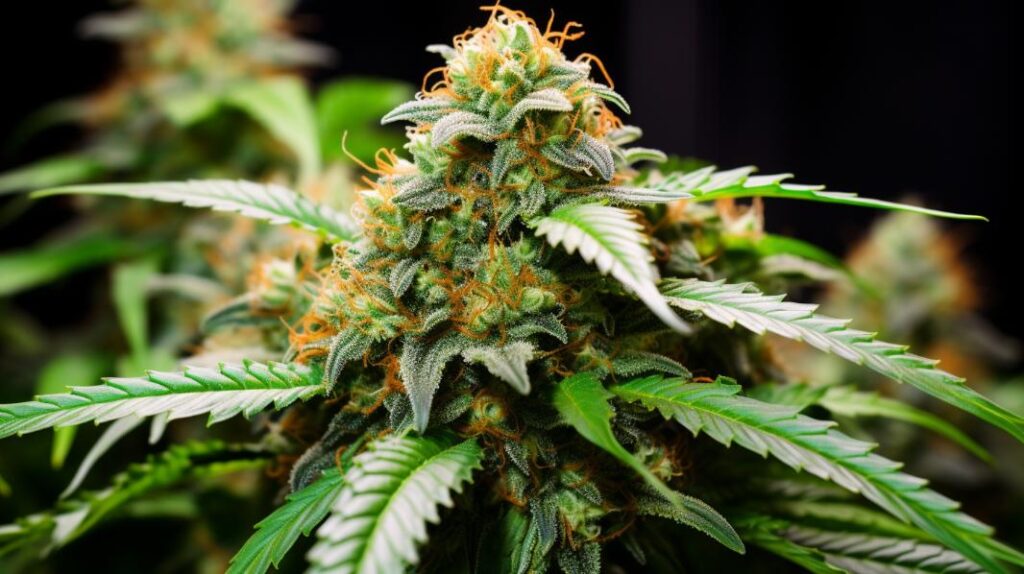
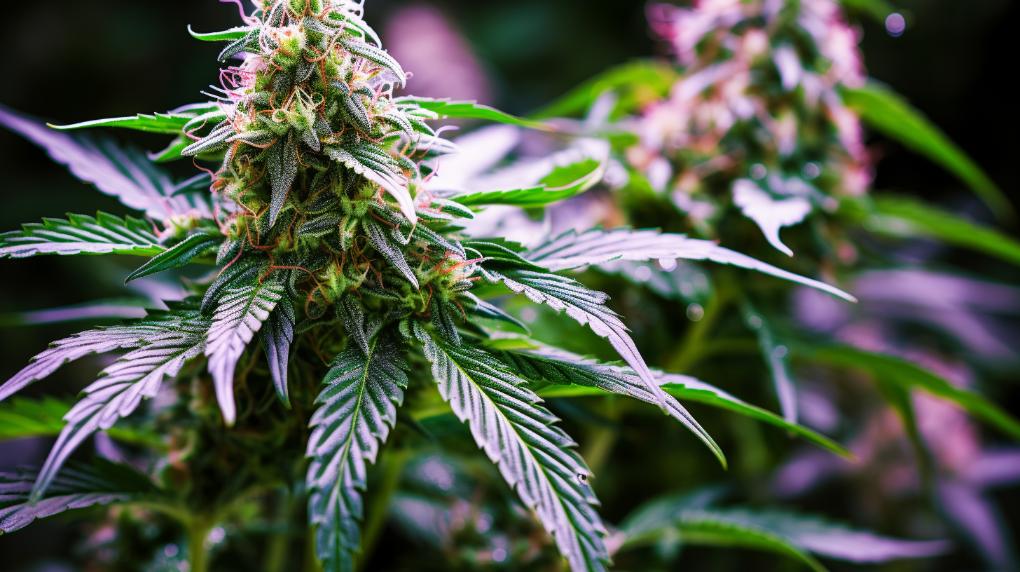
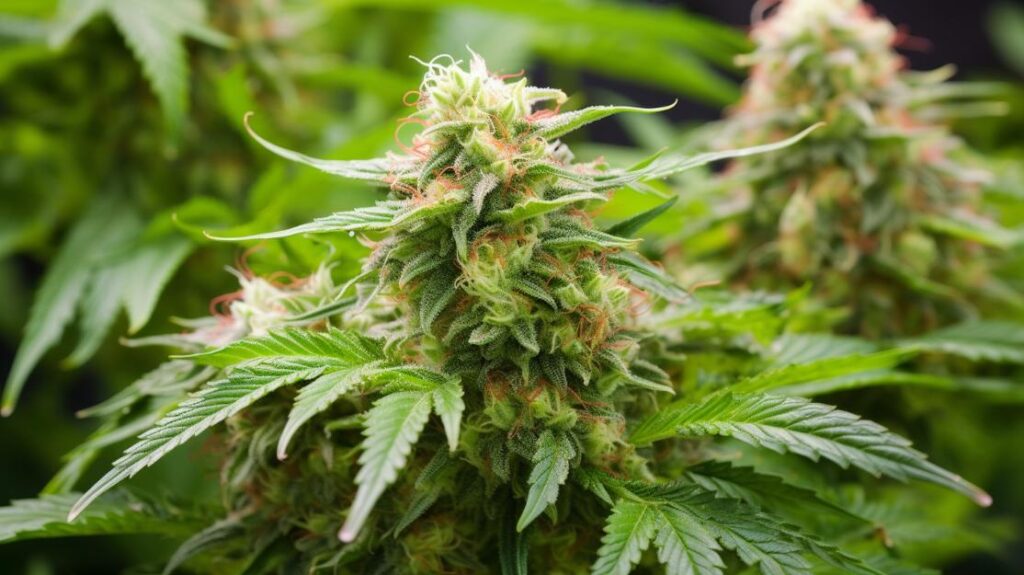
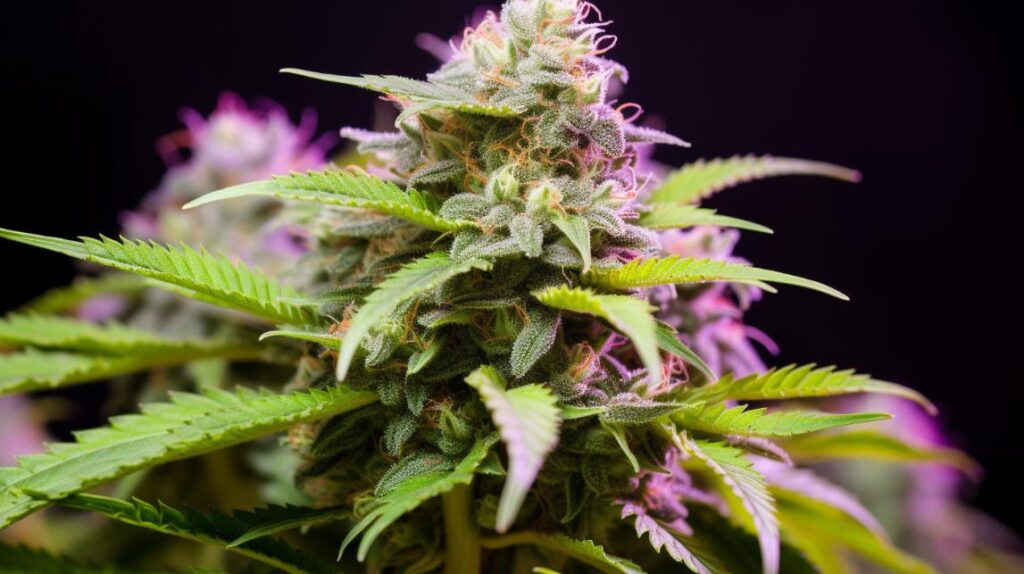
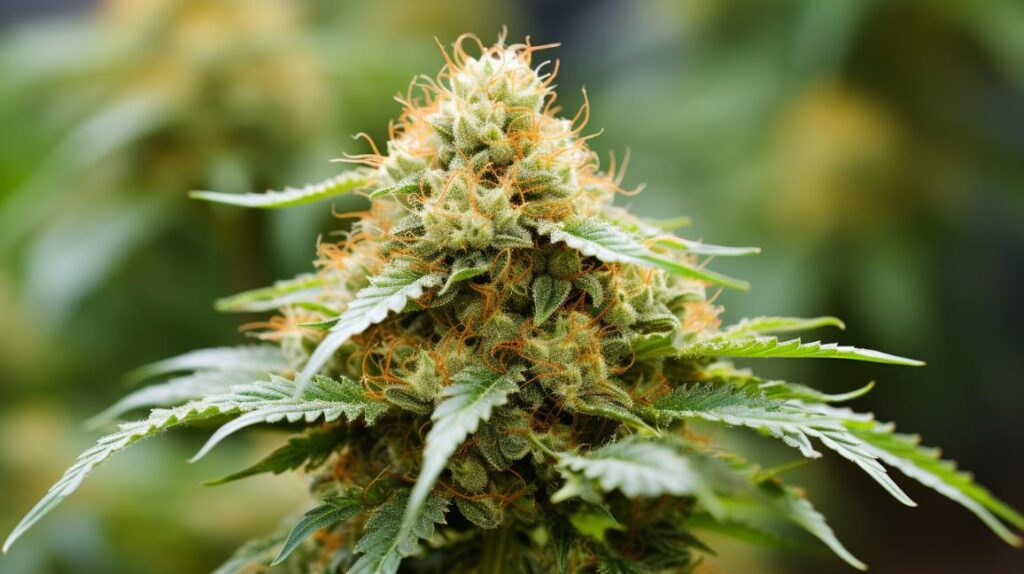

Responses